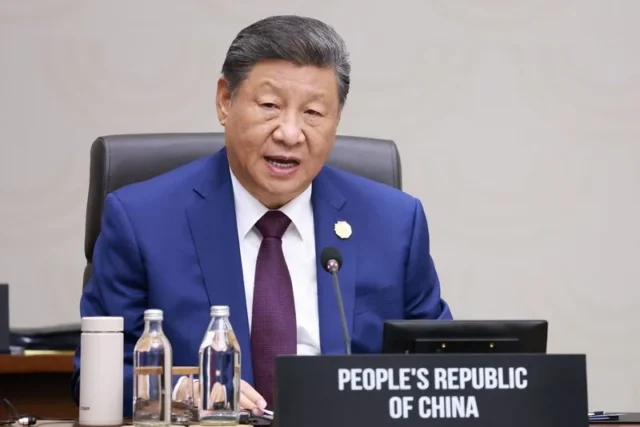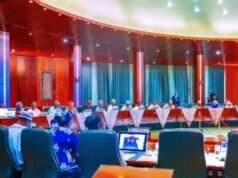As tech rivalry intensifies, China’s global AI body pushes at APEC, challenges U.S. dominance in setting AI rules.
In the coastal city of Gyeongju, South Korea, the leaders of the 21-nation Asia‑Pacific Economic Cooperation (APEC) forum gathered for a high-stakes summit where the spotlight fell squarely on technological competition, strategic alignment and the global future of artificial intelligence (AI). For Nigeria and Africa alike, the tectonic shifts in how major powers shape AI governance may carry profound implications.
At the centre of the drama stood Chinese President Xi Jinping, who used the stage to unveil a bold concept: the creation of a global regulatory agency for AI—what Beijing calls a “World Artificial Intelligence Cooperation Organisation,” according to Reuters. The proposal represents both a challenge and an invitation—a direct push to reshape the international architecture of AI governance, one in which China seeks to play a leading role.
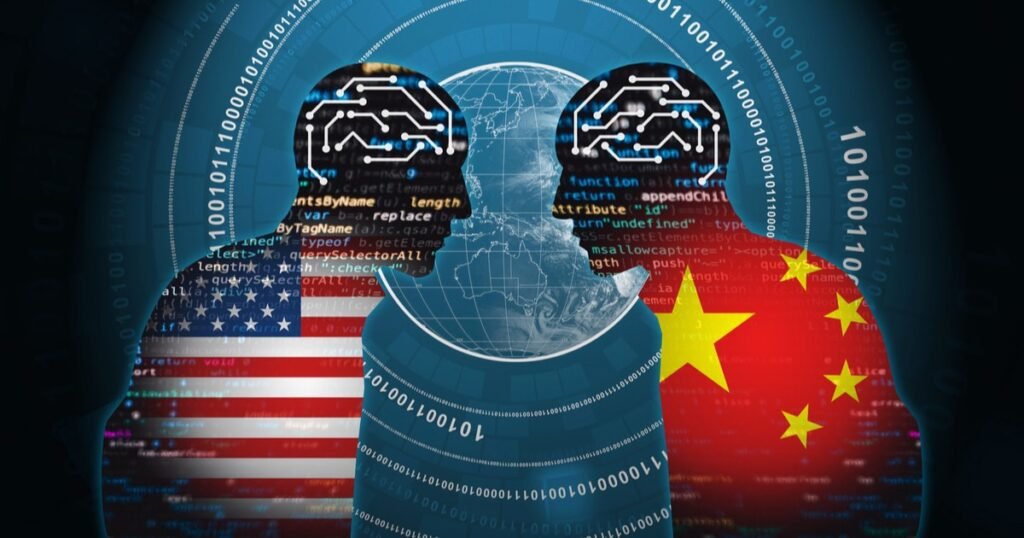
Table of Contents
A Vision for AI as a Public Good and China’s Offer
President Xi framed his proposal in inclusive terms: that AI “is of great significance for future development and should be made for the benefit of people in all countries and regions.” He urged APEC members to consider an institutional framework that would set governance rules, promote cooperation and treat artificial intelligence as a “public good for the international community.”
Officials in Beijing have floated the idea of placing the headquarters of this new body in Shanghai—China’s commercial hub—underscoring the economic and symbolic weight of the initiative. By offering this blueprint, China is signalling to the world: it is ready not only to contribute to the AI ecosystem but to help steer it.
From the vantage of an African nation like Nigeria, the idea is significant. If such a body takes shape, it may influence standards, regulatory frameworks and technology flows—areas where many African countries are still defining their stance. China’s invitation implies a form of partnership: join us in the crafting of rules.
Pushback from the U.S. and the Trade-Regulation Nexus
The United States, notably represented in this summit context by its absence—US President Donald Trump did not attend and returned to Washington immediately after he met with Xi—has asserted scepticism about such multilateral AI regulation. The U.S. stance places it at odds with China’s proposal, and underscores an emerging strategic divide: Will AI governance follow the U.S. model of open competition or China’s blueprint of state-anchored cooperation?
The timing is telling. Amid their discussions in Gyeongju, Xi and Trump agreed on a one-year deal to partially roll back trade and technology controls that had contributed to rising tensions between the two economic giants, per Reuters. That deal sets the context: while trade thawing may be underway, deeper strategic questions—especially about AI, chips and algorithms—remain contested.
For Nigeria and other African states, this is more than abstract geopolitics. The U.S. and China are both courting Africa as they build supply chains, digital infrastructure and tech partnerships. A global AI body with Chinese leadership could tilt standards and access in favour of China-aligned frameworks or vendors—potentially shaping who supplies infrastructure, sets protocols and controls data flows.
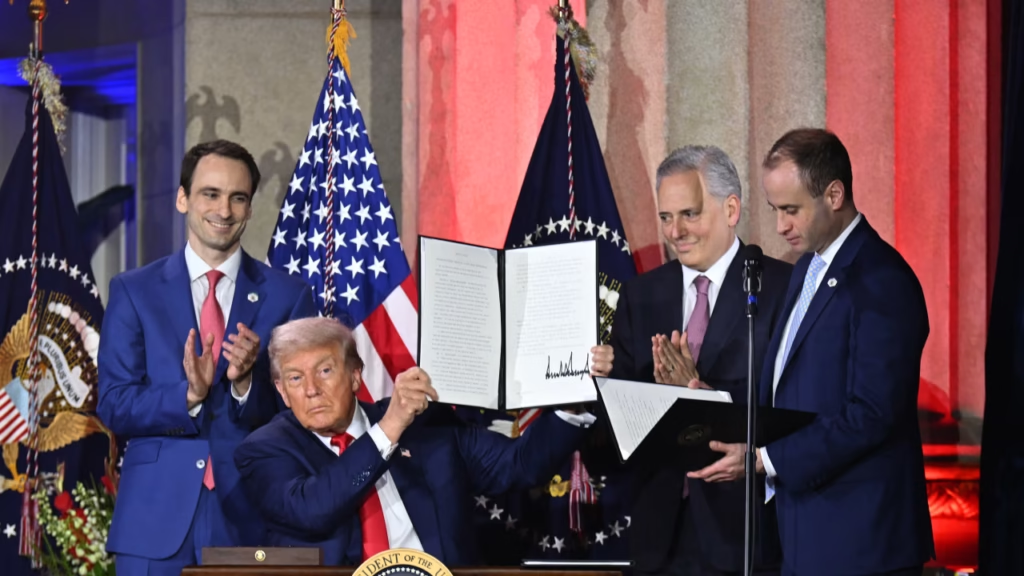
Economic Leverage, Regional Ambitions and What It Means for Africa
Beyond AI, President Xi used the APEC platform to press for the “free circulation” of green technologies—such as solar panels and batteries—where China already holds significant dominance. He emphasised the importance of cooperation on economic development and trade, positioning China as the champion of a multilateral trade model distinct from the U.S.-led paradigm.
The significance of this cannot be overstated for Nigeria. China’s push for algorithmic sovereignty—its emphasis on the ability to domestically control AI and chips—comes alongside its drive to build and export its digital ecosystem. African nations could find that the rules, standards and governance arrangements of tomorrow’s AI world are being written now.
The declaration approved by APEC in Gyeongju included reference to AI and the challenge of ageing populations—but the details of how governance, regulation or enforcement will work remain vague. China will host the 2026 APEC summit in Shenzhen, underscoring its growing regional influence: Shenzhen is a robotics and electric-car manufacturing hub that only decades ago was a fishing village. Reuters
Looking Ahead: Nigeria’s Strategic Options and the Global AI Landscape
For Nigeria, the message is clear: the world of AI governance is being shaped and you do not want to be a mere bystander. Whether Nigeria chooses to align more closely with U.S. open-market norms or China’s state-driven cooperative model—or forge a hybrid path—the decisions made now at forums like APEC will ripple through.
Here are key takeaways for Nigerian policymakers, tech firms and civil society:
- Position Nigeria as active in setting AI standards rather than passively adopting them—engage in international fora and signal interest.
- Monitor China’s “World Artificial Intelligence Cooperation Organisation” idea closely: if it crystallises, Nigeria will want to map its implications for access to Chinese tech, standards alignment and potential dependencies.
- Evaluate trade-infrastructure deals with Chinese firms through the lens of long-term technology sovereignty—who controls the algorithms, data flows and infrastructure?
- Consider diversifying partnerships: having both U.S. and Chinese pathways keeps options open, and gives Nigeria leverage in negotiating technology, regulation and investment deals.
- Spur local capacity: as global standards shift, locally skilled engineers, regulators, and academics will be essential to ensure Nigeria can adapt and comply rather than lag.
In this unfolding era, AI is not simply a technical issue—it is geopolitical, economic and foundational to digital development. China’s push at APEC signals a bid to lead the narrative. Nigeria’s task is to listen, interpret and position itself smartly.
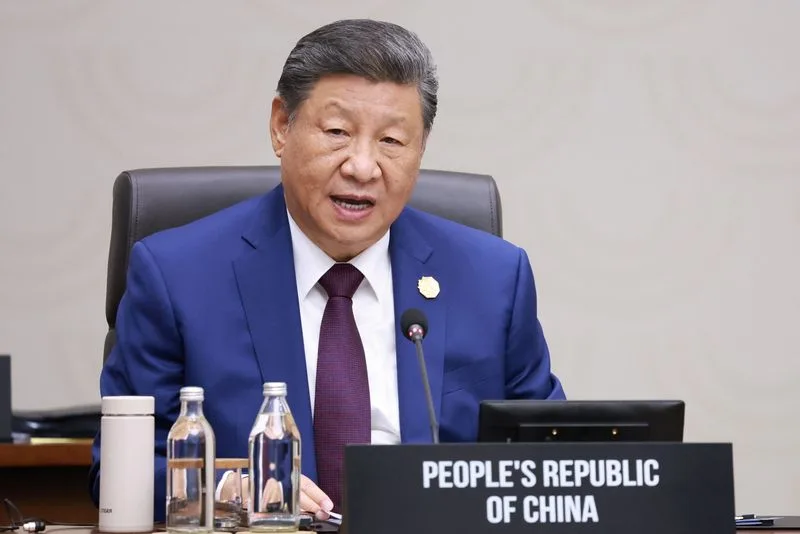
Conclusion
In Gyeongju, amidst the pomp of international diplomacy, President Xi’s call for a global AI body may seem abstract—but its consequences are tangible. For African nations, the choice is not whether AI matters—it already does. The question is how we choose to engage with its governance, shape its rules, and ensure our interests are protected. The world is writing the rulebook now—and Nigeria would do well to read the pen strokes closely.
Join Our Social Media Channels:
WhatsApp: NaijaEyes
Facebook: NaijaEyes
Twitter: NaijaEyes
Instagram: NaijaEyes
TikTok: NaijaEyes


